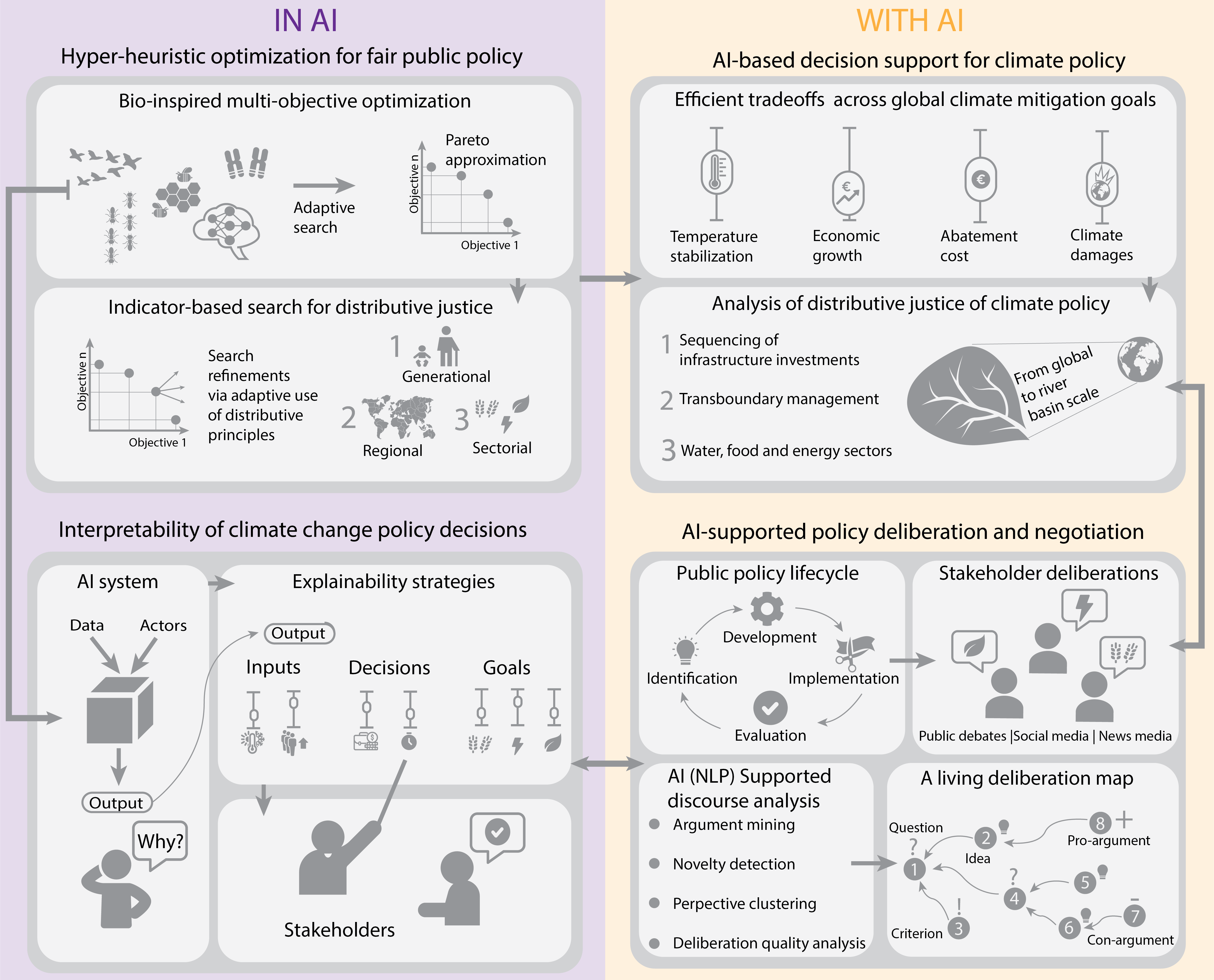TU Delft launches new series of TU Delft AI Labs
TU Delft is launching a new series of eight TU Delft AI Labs today. In these labs, scientists are using artificial intelligence (AI) to accelerate scientific progress and help solve societal issues. Another eight labs will be launched later in 2021, bringing the total to 24. In the past year, almost all sixteen of the new Assistant Professor posts opened as part of this programme thus far have been filled. One of the new labs is the Hippo Lab: Hyper-heuristics for Interpretable Public Policy Analysis, that is being led by TPM researcher Jazmin Zatarain Salazar together with Pradeep Murukannaiah, researcher at the faculty of EEMCS.
The rapid developments in AI, data sciences and digitalisation can bring about an acceleration in scientific progress across all domains, from medical sciences to infrastructure research, and from fundamental to applied research, which is why TU Delft launched the first eight TU Delft AI Labs in 2020. Central to these labs is the collaboration between experts in the most advanced AI technologies with domain experts. Today’s launch of the second series of eight labs brings the total number of labs currently active to sixteen. The recruitment of 32 PhD students for the new TU Delft AI Labs will start end of February. In addition, TU Delft will present the labs at the MIT European career fair on 25 February.
Education
AI-related knowledge is also vital for the future generation of engineers and scientists in technology, which is why the labs are also used to reinforce teaching in AI, data sciences and digitalisation and to build bridges with teaching in the various science domains.
About the Hippo Lab
Highly consequential decision contexts such as climate change mitigation involve conflicts across multiple sectors, regions, and generations. Artificial Intelligence (AI) offers exciting opportunities for meaningful decision support in such contexts. However, to attain real-world impact, AI techniques must address the well-being of all stakeholders, minimize conflict, and protect vulnerable communities.
The Hippo Lab (Hyper-heuristics for Interpretable Public Policy Analysis) aims to develop nature-inspired hyper-heuristic optimization methods, which capture the complexity of real-world problems in a flexible manner, and deliver solutions in a timely fashion for decision support. These methods are inspired in natural processes such as evolution, neural networks, ant colony behaviour, and the motion of bird flocks.
The Hippo lab expects to use the tools it develops to achieve fair efficiency in public policy design and analysis. To assure broad societal benefits, first, we will advance AI on fair design by incorporating the principles of distributive justice to guide the exploration of policy alternatives as opposed to searching solely for efficient alternatives. Second, we will advance accountable design by improving interpretability of black-box optimisation methods that enable great flexibility and efficiency at the expense of explainability, where we only observe the outputs related to the inputs of a given system but have no understanding of the inner workings and consequently about how a certain decision was reached. Finally, we will advance human-centered design by engaging stakeholders in systematic, AI-supported, deliberation and negotiation throughout the policy development cycle.
Read more about the other new TU Delft AI Labs.



